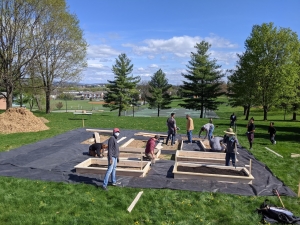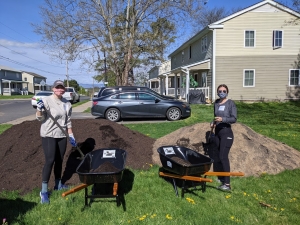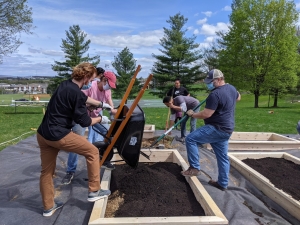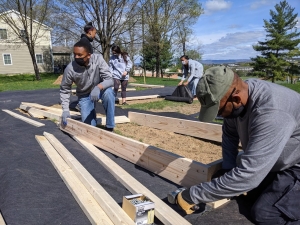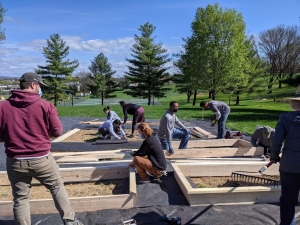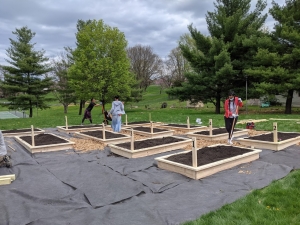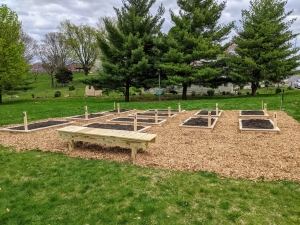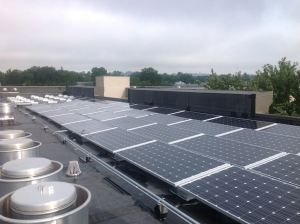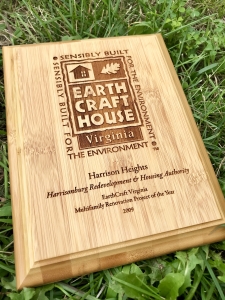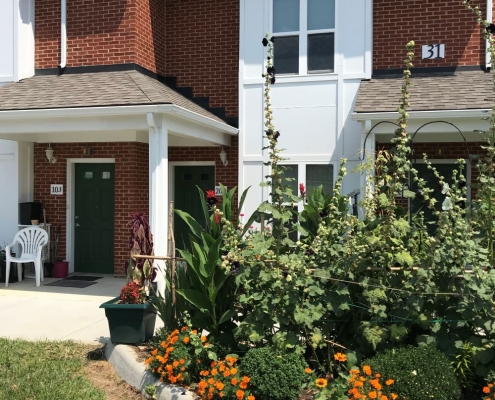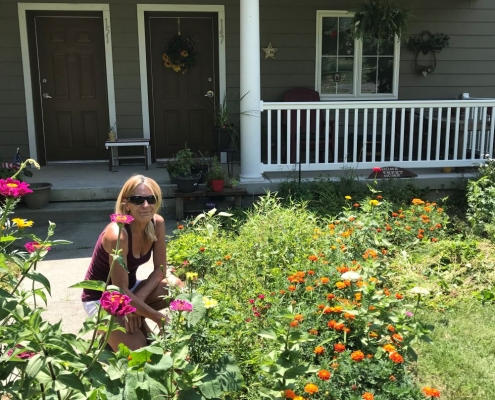JMU Dining and HRHA Host Dinner in the Garden
After a brief rain shower cooled off the summer air, JMU Dining’s Chef James Routhier began his cooking demonstration: a summer meal that is cheap, easy, and uses vegetables and herbs growing right in the Kelley Street garden. On July 24, JMU Dining and HRHA hosted “Dinner in the Garden”, a chance to celebrate the Kelley Street garden and the people who have been involved throughout its development. A 2020 grant through JMU Dining and the Alliance for Strong Families and Communities made the garden possible. And after a community build day in April and a resident planting day in May, the garden is now in full swing. Central Shenandoah Valley Master Gardeners have been coming in multiple times per month to assist gardeners with weeding, staking plants, watering, harvesting, and more. Tomatoes, peppers, cucumbers, eggplant, zucchini, and more are growing beautifully. Saturday’s Dinner in the Garden helped celebrate this community effort.
After Chef James’ demonstration, Harrison Heights residents and families, HRHA staff and board members, and community supporters shared a summer meal catered by JMU Dining and based on Chef’s earlier demonstration. It was an incredible evening of good food and community building. Kelley Street gardener and 6-year old resident Justice even made the front page of the Daily News Record.
A huge thank you to Chef James, Emily, Ben, Brent, and the entire JMU Dining team for sponsoring this beautiful evening, and for supporting the garden from the beginning. Thank you!
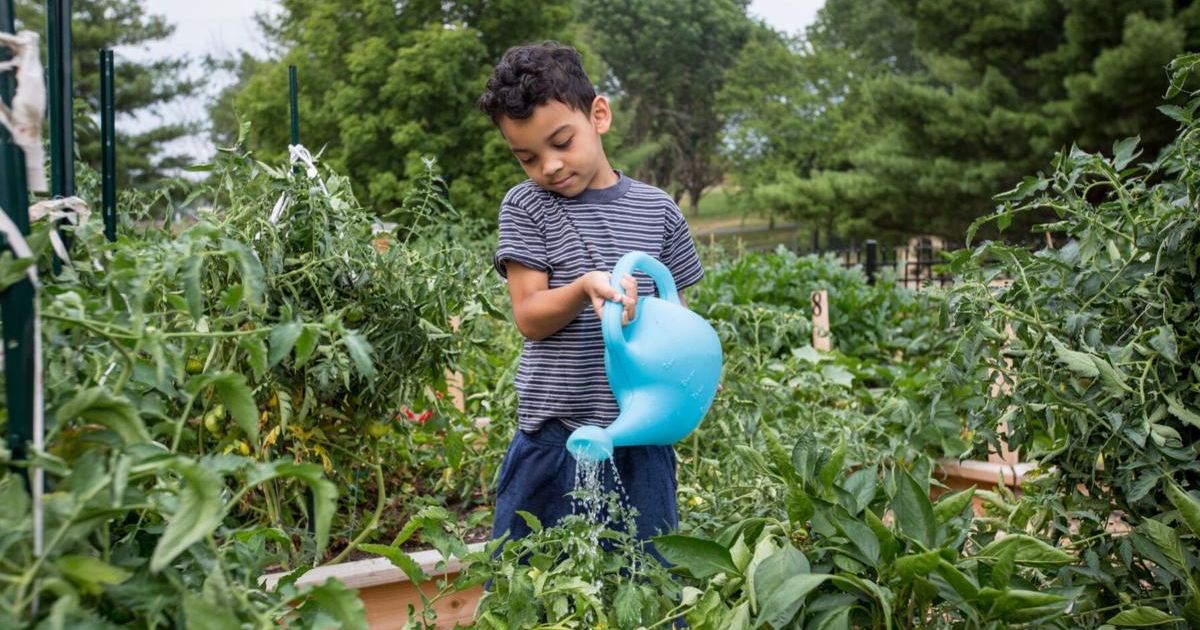
HRHA Resident Justice waters plants in his garden box – July 24 2021 Photo by Daniel Lin of the Daily News Record
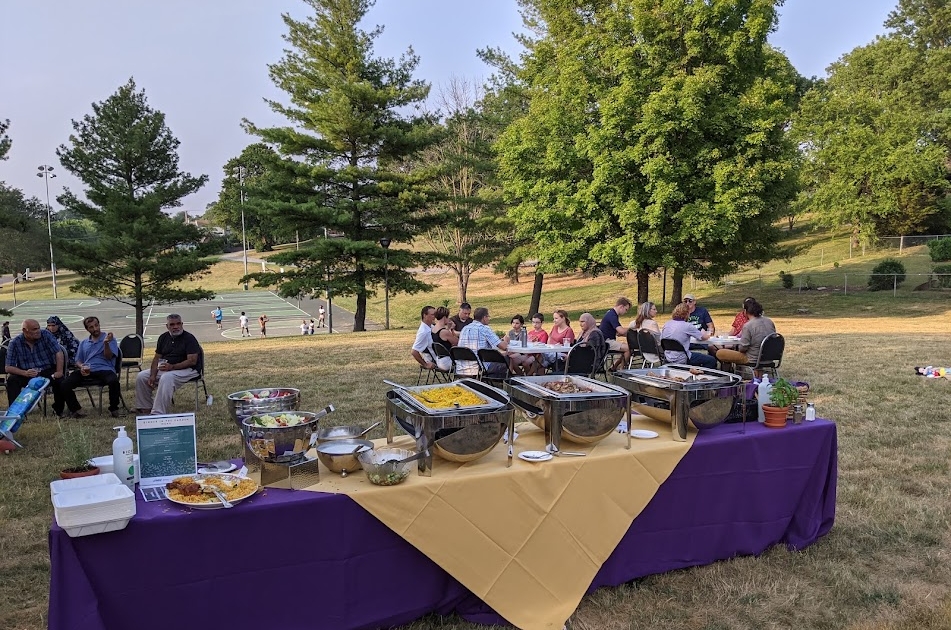
Residents, HRHA staff and board members, and community supporters share dinner – July 24 2021
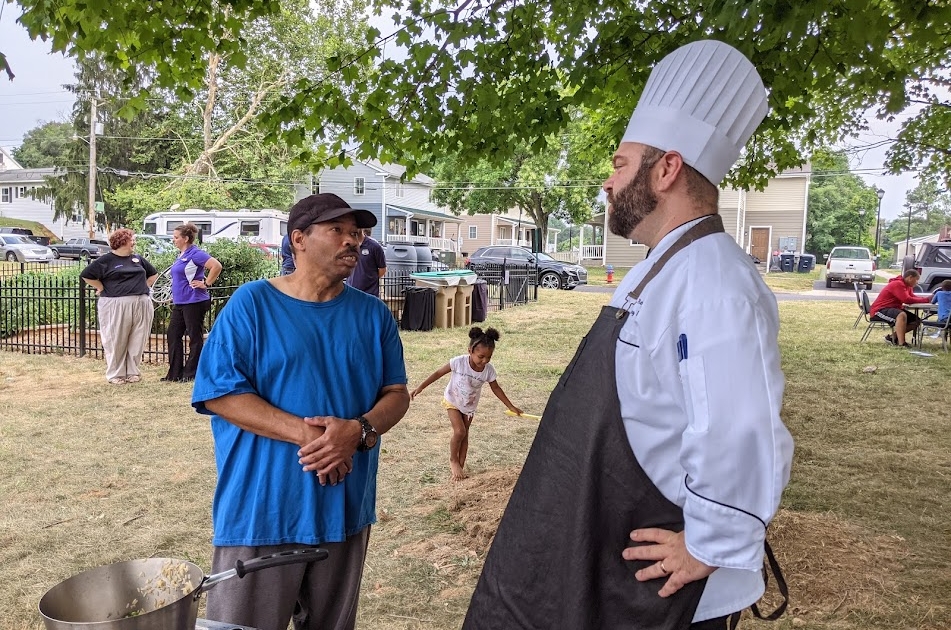
HRHA resident Ronnie and JMU Dining’s Executive Chef James swap culinary successes – July 24 2021
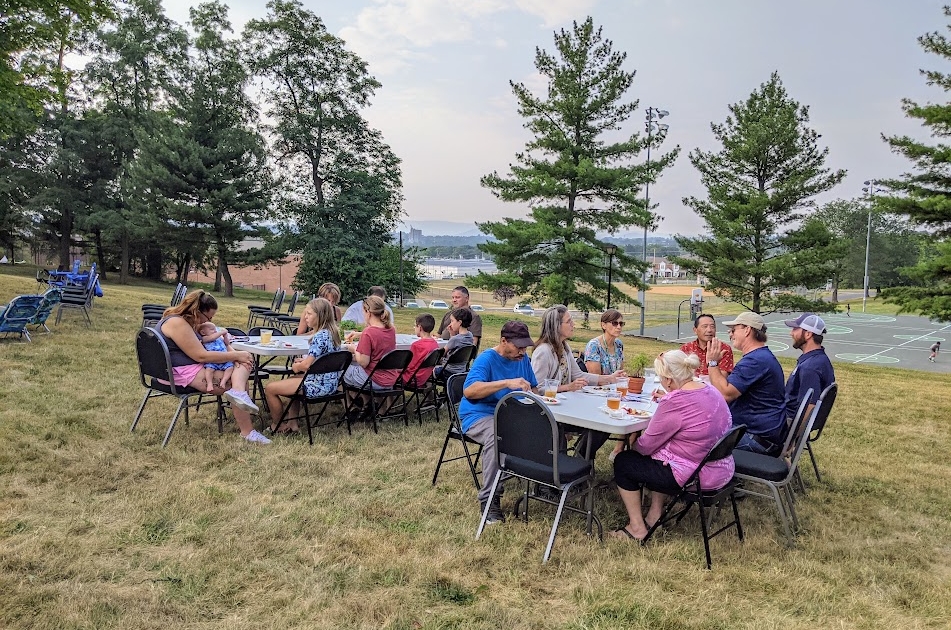
HRHA residents, staff, board members, and community members share dinner. July 24, 2021
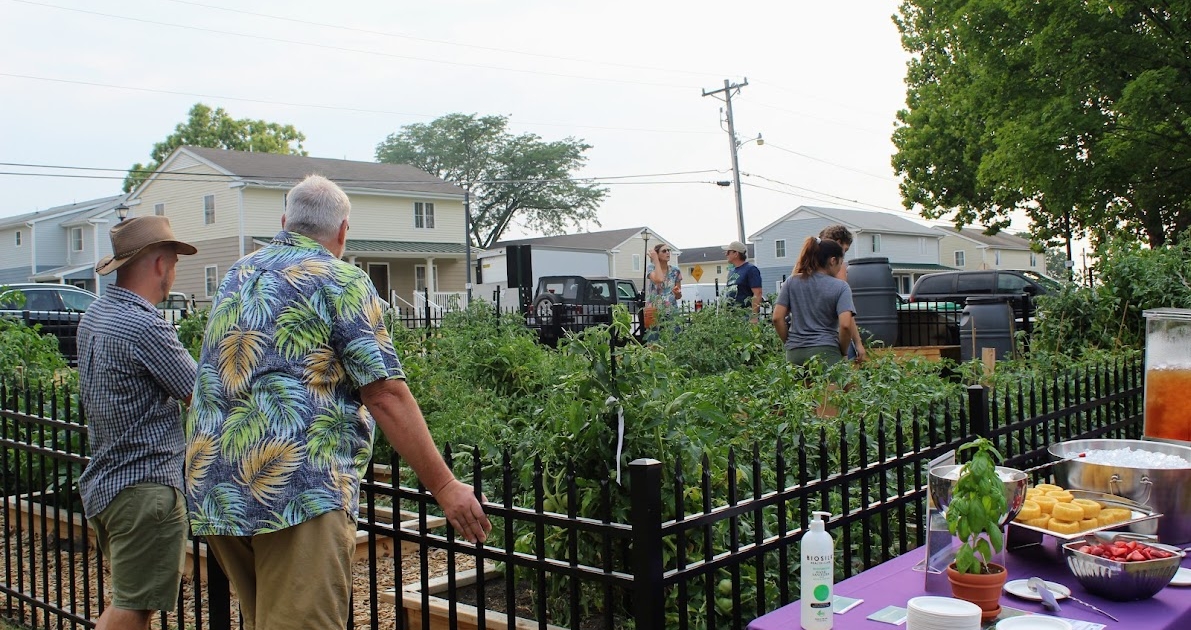
HRHA’s Everett Brubaker and Director of JMU Dining Services Brent Beringer look over the garden. Master Gardener Karen speaks with HRHA resident and gardener Martin about his box (back). Photo by Emily Cozic – JMU Dining.
